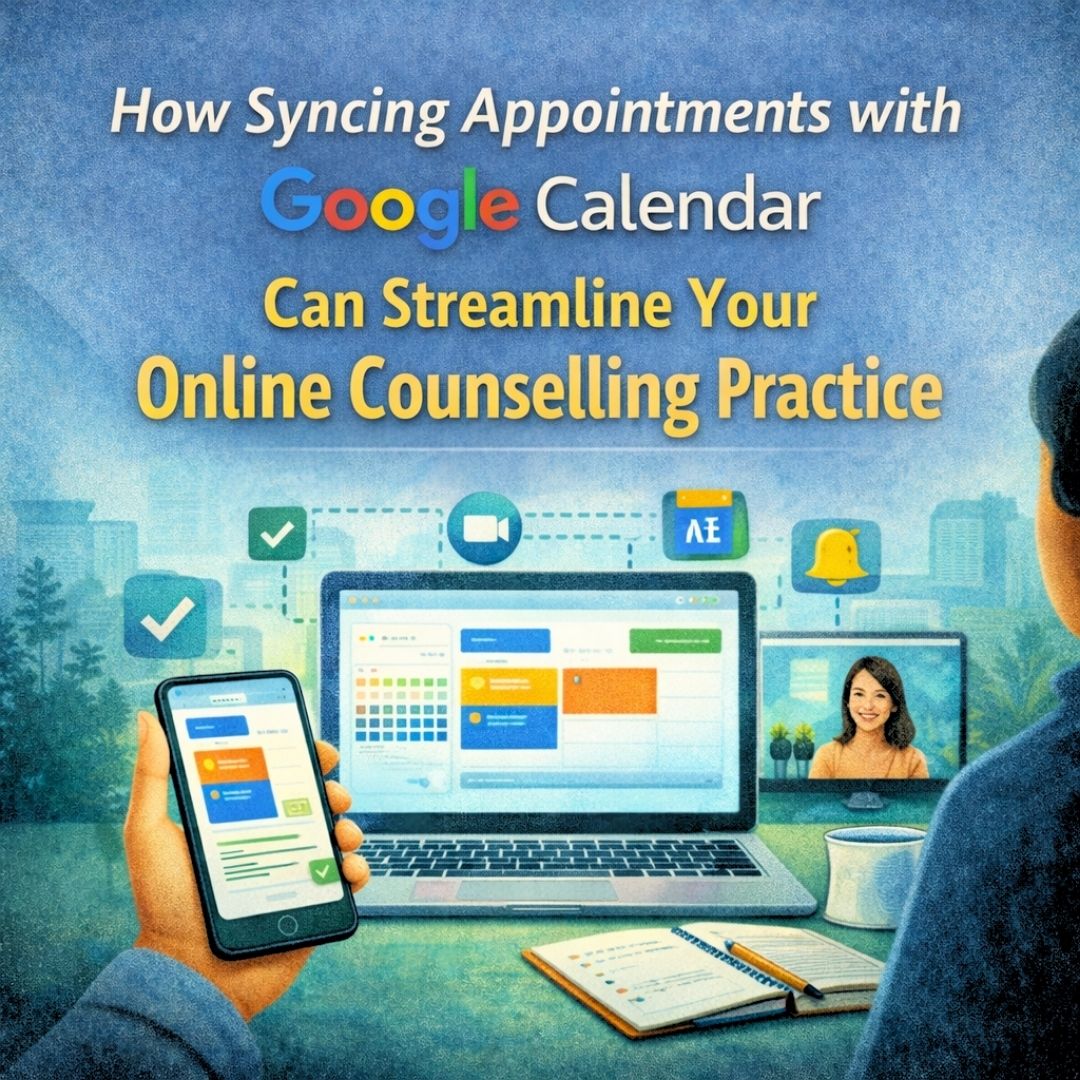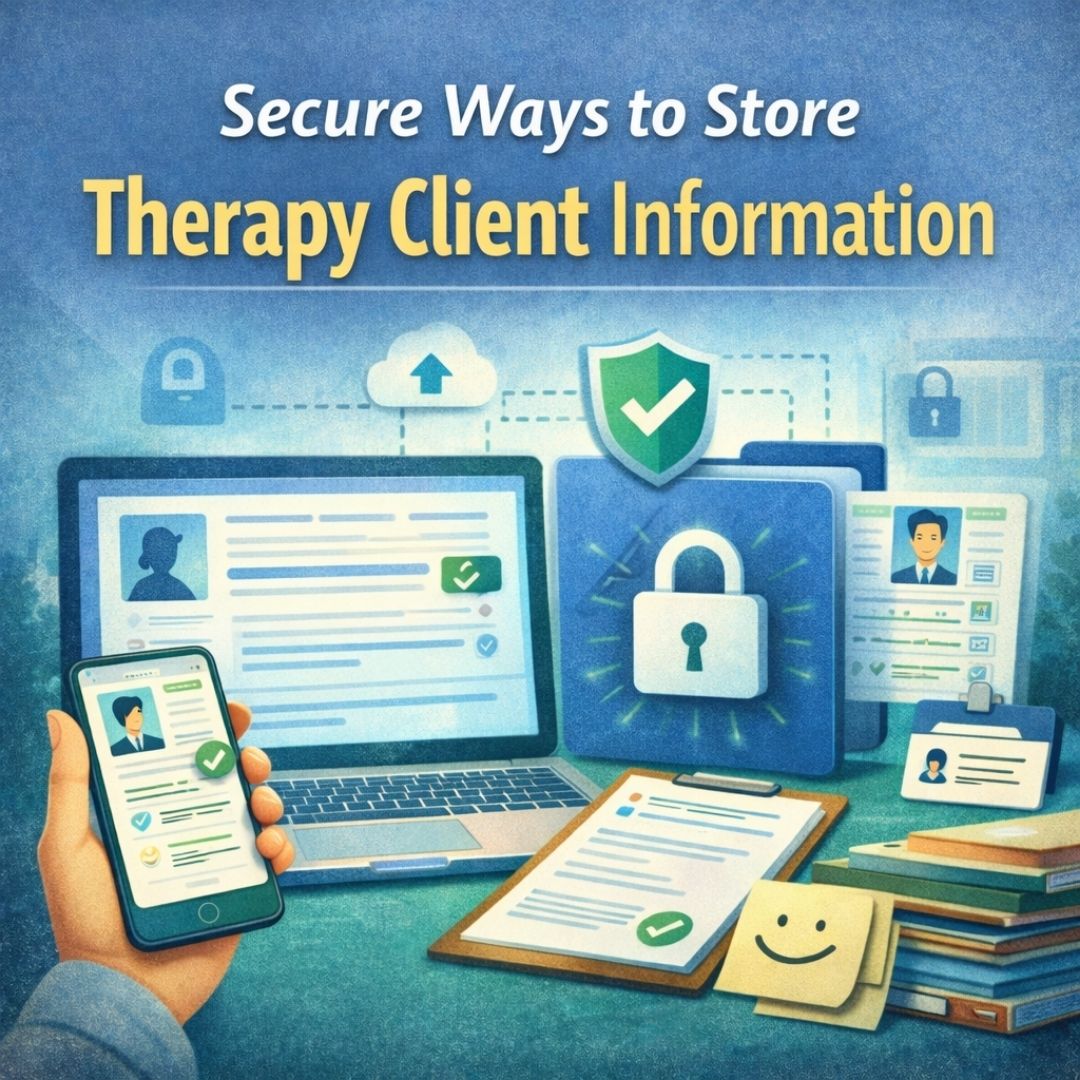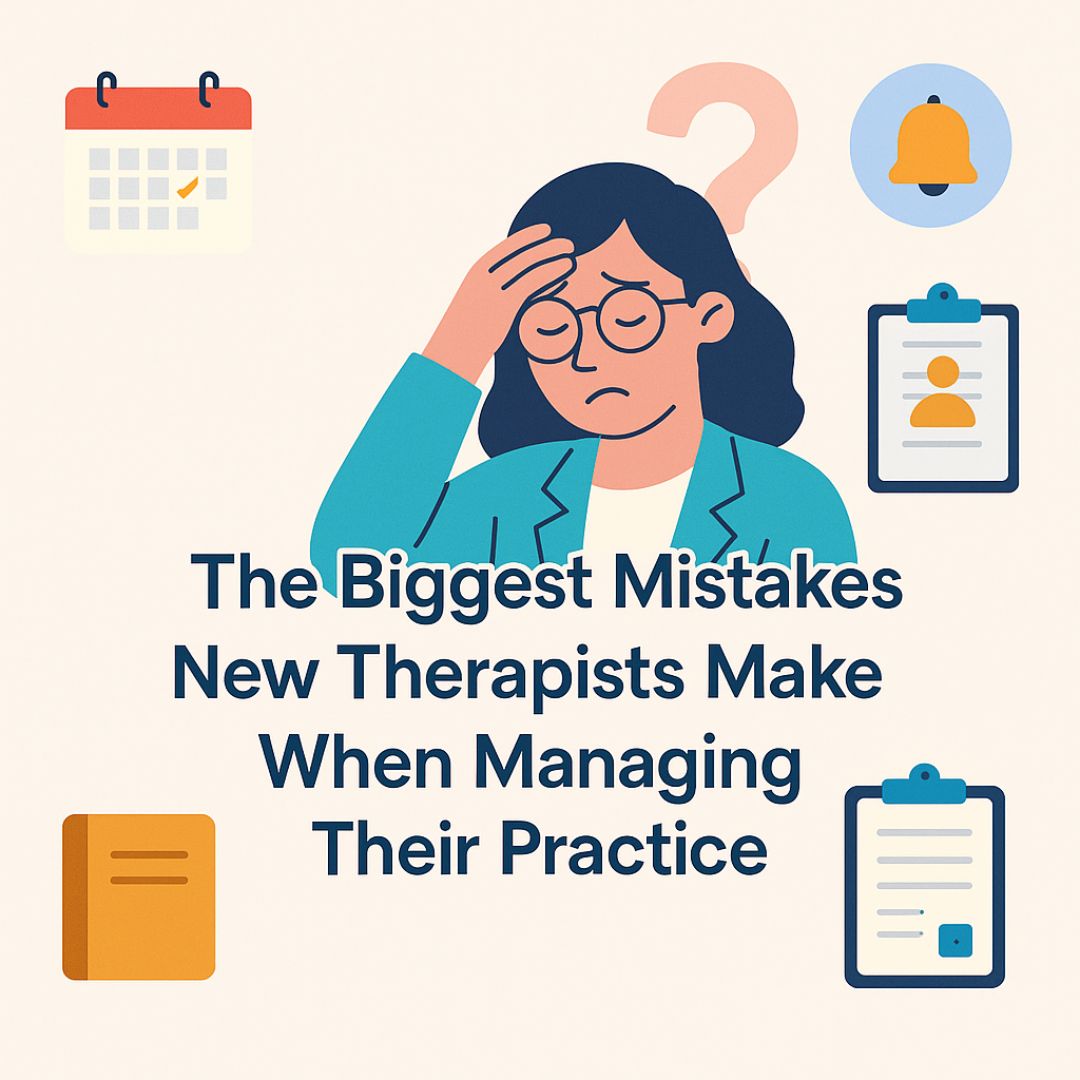Is Online Therapy Legal in India? Everything You Need to Know Before You Offer or Seek Help
Online therapy in India is booming, but is it legal? In 2025, mental health professionals and clients alike must navigate complex legal and ethical frameworks to ensure therapy is safe, secure, and compliant. This guide simplifies India’s evolving mental health laws—including the Mental Healthcare Act, Telemedicine Guidelines, and IT Act—to help you understand who can offer therapy, how to protect client data, and what you must do to stay within legal boundaries.

“Mental health needs a great deal of attention. It's the final taboo, and it needs to be faced and dealt with.”
— Adam Ant
Introduction
A 2025 study assessed telepsychiatry dropout: 56% of patients discontinued once physical OPDs resumed. Identified major barriers: consultation brevity, frequent provider changes, tech challenges, privacy issues. Convenience and time saved were key motivators
This staggering gap between access and awareness calls for clarity, especially when it comes to legal requirements for online therapy in India.
If you’re a psychologist, counsellor, or someone planning to offer therapy online, you’ve likely asked yourself: Am I allowed to do this legally?
And if you're someone looking for help online, you may wonder: Is this safe? Is this therapist even qualified?
Thanks to the rise of digital platforms, online therapy has made mental health support more accessible. But with this new convenience also comes confusion, especially around the legal requirements for online therapy in India.
This article will simplify and explain everything, so whether you're offering therapy or receiving it, you’ll know your rights, your duties, and how to stay safe and legal.
Understanding the Legal Framework for Online Therapy in India
India does not yet have a single, codified law governing online therapy. However, several legal and regulatory frameworks intersect to define what's acceptable, what's ethical, and what's mandatory. A scoping review highlighted changing health-seeking behaviours and increased demand for telepsychiatry and digital mental health tools during COVID-19, highlighting why there is a significant need to understand the legal framework for online therapy in India.
a) The Mental Healthcare Act, 2017 (MHCA)
This is the foundational legislation governing mental health services in India. Some key points:
- Section 18 of MHCA ensures the right to access mental health care, including remote or telemedicine-based therapy.
- It mandates that care be affordable, available, and accessible, which validates the role of online therapy in achieving universal access.
However, the Act is vague on how therapy should be delivered online, leaving a grey area that needs to be supported by secondary frameworks.
b) Telemedicine Practice Guidelines (TPG), 2020
The Telemedicine Practice Guidelines 2020 by the Medical Council of India (now under the National Medical Commission) and the Ministry of Health and Family Welfare were developed to legally formalize and regulate teleconsultation (online medical consultations) in India.
These guidelines only apply to Registered Medical Practitioners (RMPs)—i.e., doctors with an MBBS degree and registration under the State Medical Council or NMC.
Who Can Offer Online Consultations Under These Guidelines?
- Mental Health Professionals with MBBS (Psychiatrists):
- If you're a psychiatrist or any RMP with a specialization in mental health, you are legally permitted to provide online therapy or consultation under these guidelines.
- Non-MBBS Mental Health Professionals (Psychologists, Counsellors, Social Workers):
- These guidelines do not directly apply to you.
- Instead, you must:
- Follow the ethics codes and regulations of your own profession (e.g., guidelines by RCI, NIMHANS, or APA).
- Ensure you comply with licensing requirements of the state (e.g., some Indian states may require licenses or registration under specific mental health boards).
- Make sure that you do not prescribe medications, as that is illegal without an MBBS.
What This Means Practically
- If you’re a psychiatrist (MBBS + specialization), you’re fully covered under TPG 2020 and can provide online therapy/consultation, including issuing prescriptions, provided you meet all conditions.
- If you’re a psychologist or counsellor (non-MBBS):
- You can offer talk therapy or counselling online, but you must not diagnose medical conditions or prescribe drugs.
- You are governed by professional ethics (such as those of RCI or the Indian Association of Clinical Psychologists).
- The TPG doesn’t regulate you directly, but you’re still subject to legal action if you act beyond your scope.
c) Information Technology (IT) Act, 2000 and its Amendments
Online therapy involves sensitive data. Hence, the IT Act and Rules under Section 43A are crucial for compliance.
- Therapists and platforms must ensure data privacy, client confidentiality, and cybersecurity.
- If handling sensitive personal information, therapy providers are legally required to implement reasonable security practices such as encryption and secure servers.
How to Legally Offer Online Therapy in India – Step-by-Step
a) Get the Right Qualifications and Licenses
You must be officially trained and certified. Just having a degree is not enough.
Here are the types of professionals allowed to offer therapy:
- Clinical Psychologist – Master’s + M.Phil. in Clinical Psychology and registered with the Rehabilitation Council of India (RCI)
- Psychiatrist – MBBS + MD in Psychiatry, registered with National Medical Commission** (NMC)
- Counselling Psychologist – Master’s in Psychology (from a UGC-recognized university) + supervised training
If you’re not one of the above, you cannot legally offer therapy in India, online or offline.
b) Register with the Right Authority
- Clinical psychologists must be listed in the RCI register
- Psychiatrists must have a valid MCI/NMC number
- Private counselling psychologists may not need a license, but should follow ethical codes and have formal training
If you claim to be a “therapist” or “psychologist” without the right degree or license, it can be considered misrepresentation and illegal.
c) Use Secure, Legal Platforms for Therapy
You cannot use any app or tool randomly for therapy. Some apps are not secure or legal for handling sensitive mental health data.
What you should use:
- HIPAA-compliant platforms or secure custom-built platforms
- Tools with end-to-end encryption and password-protected access
- Avoid using casual tools like normal WhatsApp or Instagram DMs for therapy sessions
d) Take Informed Consent Before Every Session
Every client must know:
- That they are receiving online therapy
- The possible risks of online sessions (poor connection, limits in reading body language)
- How their data will be stored and used
- What to do in an emergency
Create a clear, written consent form or digital agreement that the client signs or agrees to before starting therapy.
e) Keep Confidential Records and Follow Data Protection Rules
As per the IT Act and MHCA:
- Keep session notes private
- Store records in secure, password-protected digital files
- Never share client data without permission unless it’s an emergency (like suicide risk)
Therapists who leak client information without consent can face legal penalties and lose their license.
The Practical Realities of Online Therapy – Emotional, Ethical, and Cultural Nuance
While legalities are vital, real-world practice throws up several emotional and ethical nuances.
a) Therapy Without Physical Presence
Many therapists report difficulty in reading body language or subtle emotional cues online. To mitigate this:
- Ask more reflective questions
- Increase verbal affirmations
- Check for understanding frequently
Some clients may find this distance comforting, especially those with anxiety or trauma.
b) Emergency Situations and Legal Gaps
What happens if your client threatens suicide during an online session?
- You must have the client’s emergency contact on file
- Legally, you are obligated to notify local authorities or the family (this does not break confidentiality under MHCA’s emergency clause)
c) Digital Divide and Access Inequity
Online therapy often excludes:
- Those without stable internet
- Elderly clients unfamiliar with tech
- People in remote areas
As a therapist, consider alternate access strategies like audio calls, WhatsApp-based check-ins (non-sensitive topics), or hybrid models.
Conclusion
The future of therapy is undeniably digital, but that future must be both ethical and legal. As India continues to build its mental health infrastructure, clarity on the legal requirements for online therapy in India will protect both therapists and clients alike.
Let’s move from confusion to confidence. From casual advice to qualified care. Because mental health deserves more than convenience—it deserves compliance and compassion.
Remember what Adam Ant said: mental health is the final taboo. But through careful law, ethical practice, and digital responsibility, we can finally break it—safely, legally, and with heart. If you are someone looking for the best therapists in India, make sure that they are ethical and legal.
Sources
Telepsychiatry in post-pandemic India - Telepsychiatry in post-pandemic India: A mixed methods exploration of patient perspectives and preferences toward telemedicine versus in-person consultations - PubMed
Telemedicine practice guidelines of India, 2020: Implications and challenges - Telemedicine practice guidelines of India, 2020: Implications and challenges - PubMed
Telepsychiatry and the Role of Artificial Intelligence in Mental Health in Post-COVID-19 India - https://journals.sagepub.com/doi/full/10.1177/0253717620952160?utm_source
The Mental Healthcare Act, 2017 – Ministry of Law and Justice, India
Telemedicine Practice Guidelines, 2020 – NITI Aayog and MoHFW
IT Act, 2000 – Department of Electronics and Information Technology
RCI Guidelines – Rehabilitation Council of India
FAQs
Q1: Can anyone offer therapy online in India?
No. Only certified professionals—such as licensed clinical psychologists, psychiatrists, or certified counsellors—can legally offer therapy online.
Q2: Do I need to register my online therapy service with any authority?
If you're a registered individual practitioner, you don’t need to register a separate business. But for therapy platforms or startups, business and data protection compliance are required.
Q3: Is online therapy confidential and secure?
It should be. The therapist must follow IT Act data rules, use secure platforms, and maintain client confidentiality just as in face-to-face therapy.
Q4: What should I check before choosing an online therapist?
Ensure they’re licensed, have verified credentials, and provide clear consent forms. Look for affiliations with RCI, NMC, or UGC-approved institutions.
Q5: Can online therapy be used in court as legal evidence?
Typically, therapy session content is confidential. But in some rare legal or criminal cases, with court orders, therapists may have to disclose certain information. This varies case-by-case.
Related Reads. Similar Blogs to Check Out.


